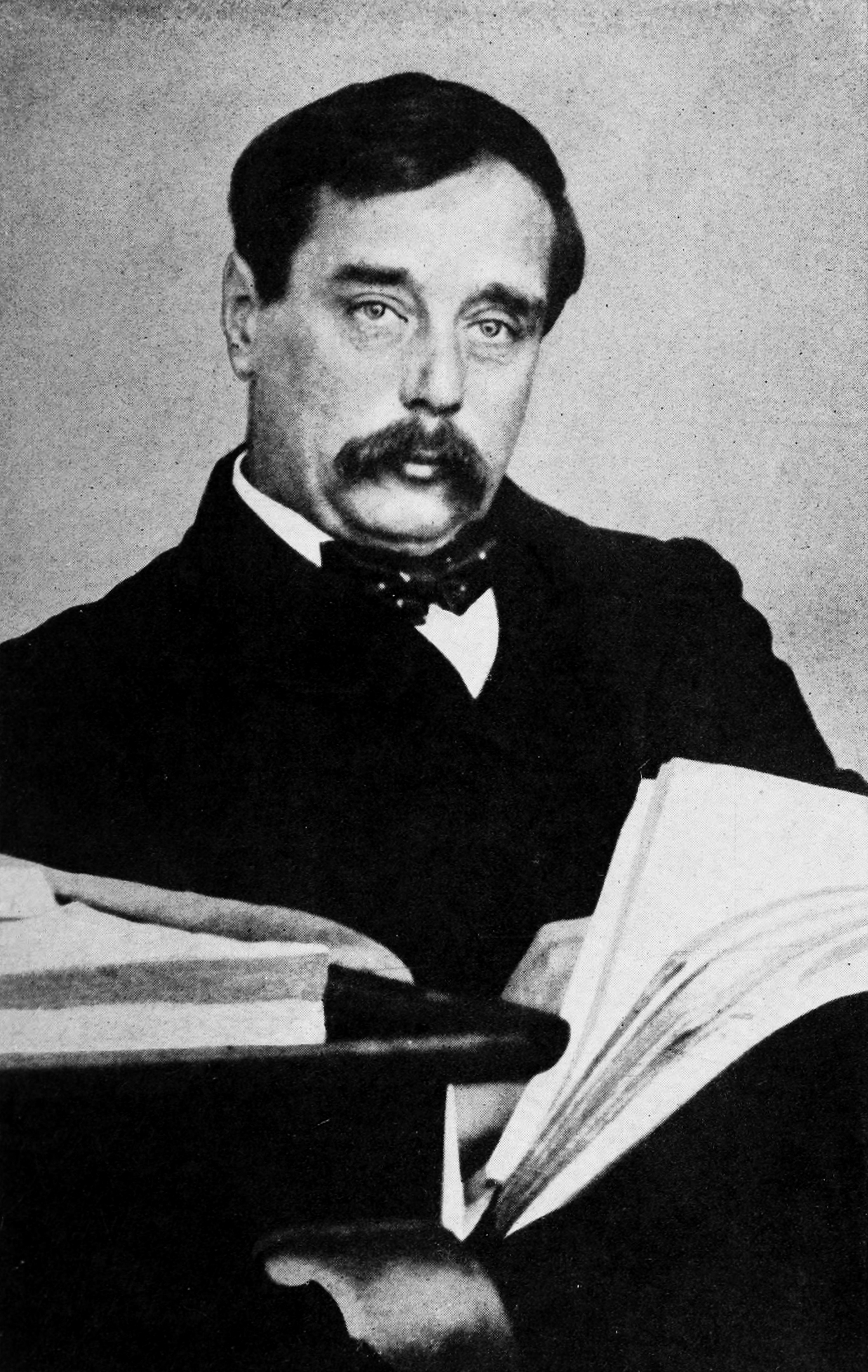Fantasia Mathematica is an anthology compiled by Clifton Fadiman and published in 1958, containing stories, humour, poems, etc. on mathematical topics. The volume is organised into three sections – Odd Numbers, Imaginaries, and Fractions – and contains contributions by authors including Robert Heinlein, Aldous Huxley, H. G. Wells, and Martin Gardner.
In his 1998 review published in the journal Endeavour, J. V. Field suggested that some of the entries seemed rather dated, particularly those that rely on “wink and nudge attitudes to sex”. He did though conclude that the book would “make a suitable present for a person who is inclined to find mathematics fun”.[1]
Odd Numbers
This first section of the book contains seven stories, dialogues, or excerpts from novels by writers – with exception of Plato – who are not usually associated with mathematics.
- “Young Archimedes”, by Aldous Huxley
- “Pythagoras and the Psychoanalyst”, by Arthur Koestler
- “Mother and the Decimal Point”, by Richard Llewellyn
- “Jurgen Proves It by Mathematics”, by James Branch Cabell
- “Peter Learns Arithmetic
 Novel by H. G Wells published in 1918, about the education and adolescence of Joan and Peter, two samples of their generation, an excerpt of which was published under the title "Peter Learns Arithmetic" in 1958.“, by H. G. Wells
Novel by H. G Wells published in 1918, about the education and adolescence of Joan and Peter, two samples of their generation, an excerpt of which was published under the title "Peter Learns Arithmetic" in 1958.“, by H. G. Wells - “Socrates and the Slave”, by Plato
- “The Death of Archimedes”, by Karel Čapek
Imaginaries
Imaginaries is the largest section, comprising sixteen science-fiction stories plus a commentary on one of them. “All of these stories actually have a certain amount of mathematical thinking in them; or else they make fun of mathematical thinking.”[2]
- “The Devil and Simon Flagg”, by Arthur Porges
- “—And He Built a Crooked House”, by Robert A. Heinlein
- “Inflexible Logic”, by Russell Maloney
- “No-Sided Professor”, by Martin Gardner
- “Superiority”, by Arthur C. Clarke
- “The Mathematical Voodoo”, by H. Nearing, Jr.
- “Expedition”, by Fredric Brown
- “The Captured Cross-Section”, by Miles J. Breuer, M.D.
- “A. Botts and the Moebius Strip”, by William Hazlett Upson
- “God and the Machine”, by Nigel Balchin
- “The Tachypomp”, by Edward Page Mitchell
- “The Island of Five Colors”, by Martin Gardner
- “The Last Magician”, by Bruce Elliott
- “A Subway Named Moebius”, by A. J. Deutsch
- “The Universal Library”, by Kurd Lasswitz
- “Postscript to “The Universal Library”, by Willy Ley
- “John Jones’s Dollar”, by Harry Stephen Keeler
Fractions
This final section “is simply an unsystematic assemblage of rhymes, jingles, serious short poems, fancies, jokes, fables and anecdotes that touch on mathematics. Many of them are pleasant trivialities and are intended to amuse, nothing more.”[3]
- “A New Ballad of Sir Patrick Spens”, by Arthur T. Quiller-Couch
- “The Unfortunate Topologist”, by Cyril Kornbluth
- “There Once Was a Breathy Baboon”, by Sir Arthur Eddington
- “Yet What Are All…”, by Lewis Carroll
- “Twinkle, Twinkle, Little Star”, by Ralph Barton
- “Mathematical Love”, by Andrew Marvell
- “The Circle”, by Christopher Morley
- “The Circle and the Square”, by Thomas Dekker
- “Euclid Alone Has Looked on Beauty Bare”, by Edna St. Vincent Millay
- “Euclid”, by Vachel Lindsay
- “To Think That Two and Two Are Four”, by A. E. Housman
- “The Uses of Mathematics”, by Samuel Butler
- “Arithmetic”, by Carl Sandburg
- “Threes (To Be Sung By Niels Bohr)”, by John Atherton
- “Plane Geometry”, by Emma Rounds
- “He Thought He Saw Electrons Swift”, by Herbert Dingle
- “Fearsome Fable”, by Bruce Elliott
- “Bertrand Russell’s Dream”, by G. H. Hardy
- “For All Practical Purposes”, by C. Stanley Ogilvy
- “Eternity: A Nightmare”, by Lewis Carroll
- “An Infinity of Guests”, by George Gamow
- “∞”, by Sir Arthur Eddington
- “No Power on Earth”, by William Whewell
- “(x + 1)”, by Edgar Allan Poe
- “The Receptive Bosom”, by Edward Shanks
- “Leinbach’s Proof”, by Arthur Schnitzler
- “Problem from The New Yorker: “Talk of the Town””
- “A Letter to Tennyson from Mathematical Gazette“
- “A Fable from Mathematical Gazette“
- “There Was a Young Man from Trinity”, by Anonymous
- “There Was an Old Man Who Said, “Do”, by Anonymous
- “Relativity”, by Anonymous
- “There Was a Young Fellow Named Fisk”, by Anonymous


